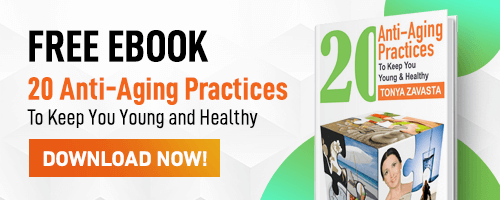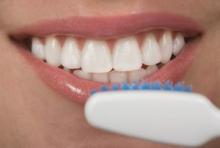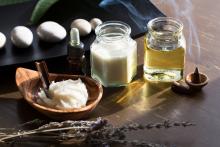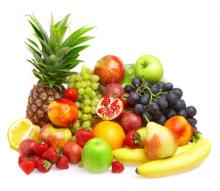Fruits and Your Teeth
Published: (August, 2021)
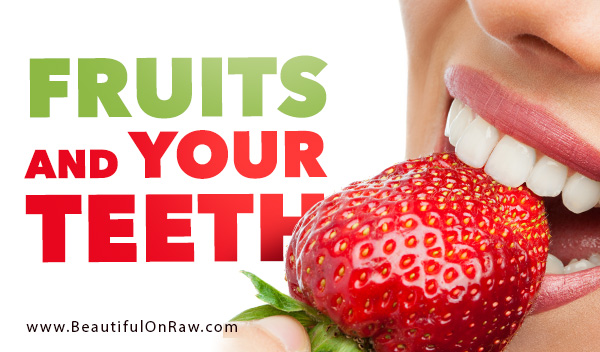

High Fruit or No Fruit Diet
Recently I posted this picture of myself on Instagram with a basket of fruit. I shared that I’m a recovering sugarholic. I haven’t touched refined sugar for more than twenty years, not even once.
My addiction was so severe that now I fear I’ll lose my “sobriety” if I have even a single bite of processed candy or cookie. Total abstinence is my way. I still have a sweet tooth, but it’s fruit I love now.
I’ve asked my readers to share whether they eat fruit regularly or belong to the camp of those who avoid sweet fruits altogether. I was surprised at the overwhelming number of people who wrote that they “love” or “can’t live without” fruit, or they “put no limits on” the fruits they eat. A few claimed to have even “cured” their diabetes with fruit.
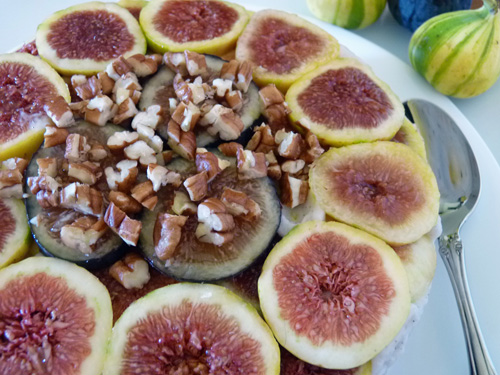
Is it only refined sugar that has a detrimental effect on the teeth?
On the Chicago Tribune website, I found the following: "The Greek philosopher Aristotle remarked that 'figs, when soft and sweet, produce damage ... because small particles adhere between the teeth, where they easily become the cause of putrefaction.'"
This was disheartening to read. I love figs, and I am sure most of you love them too. There are many benefits of eating fruit. According to research published in 2016 in the New England Journal of Medicine, people who eat fresh fruit on most days are at lower risk of heart attack and stroke than people who rarely eat fresh fruit. At the same time, we’ve all heard about the link between fruitarians and dental problems.
Many people I’ve spoken with who are transitioning to raw foods tell me they eat fruit as often as hourly. It’s easy to understand why—fruits taste good. What’s more, their taste is intense. For those transitioning from a SAD diet, especially those accustomed to stronger flavors, eating sweet fruit is easier and more familiar than chowing down on some kale or broccoli.
Many people who start eating mostly raw foods begin having dental issues. The main reason? They don’t learn quickly enough that eating a lot of fruits requires fastidious dental hygiene.
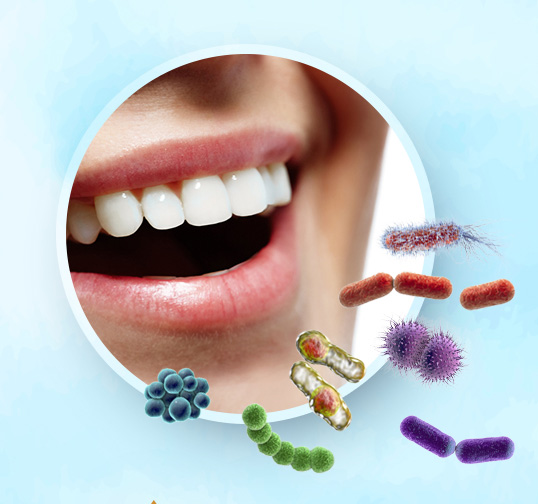
Did you know that every human mouth harbors over 700 species of bacteria? It is true, and the population is only higher in our gut! The mouth houses bacteria, fungi, viruses, and protozoa. There is a symbiotic relationship among the microorganisms in our oral cavity.
Good microorganisms maintain a check on pathogenic species by not allowing them to stick to the mucous membranes. If pathogenic bacteria take over, we get infection and disease. Our mouth is where digestion begins, so this microflora is vital in maintaining oral and overall health.
Mouth microbes colonize mostly on the hard surfaces of teeth and gums. Under ideal conditions, some species of oral bacteria can double their numbers every 20 minutes in a petri dish. In the mouth, that doesn’t usually happen—thankfully, conditions aren’t as ideal for pathogens as they are in the lab.
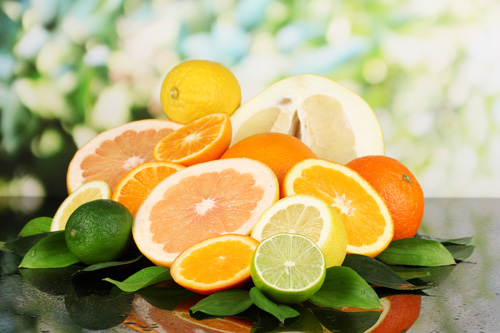
2. How to Eat Fruits Safely
We have all been trained to brush our teeth after meals. But we often don’t consider an apple or a few berries as a meal, so we don’t brush or rinse our teeth, even as we nip on fruit throughout the day. Sugar is the culprit here. Sugar—even natural fruit sugar—becomes vicious if left on your teeth.
Can you still eat fruits safely?
Yes! But make sure you follow this tip faithfully.
Tip: Avoid brushing immediately after consuming sweet fruits, especially citrus. The reason? Citrus makes the enamel on your teeth softer. Apparently, the citric acid in fruit can temporarily weaken tooth enamel. As a result, brushing immediately after eating fruit can wear down the enamel on your teeth. Instead, swish your mouth with salt water (use Celtic sea salt) after eating fruit or drinking a green smoothie. Wait about 30 minutes and THEN brush your teeth.

The oral environment causes the various species to compete with each other. But brushing your teeth and tongue for two minutes at least twice per day or after each meal is absolutely necessary for tooth and gum health!
Brush your teeth with what?
Definitely not with a commercial toothpaste. The best-known ingredient in commercial toothpastes is fluoride. The facts about fluoride's side effects and health hazards are no longer secret. Fluoride has been aggressively promoted as mandatory for preventing cavities.
Recently, however, the pendulum has begun to swing in the opposite direction, and we're learning that fluoride is not the panacea it was originally touted to be.
Fluoride is associated with thyroid dysfunction, for example, because it acts as a hormone disruptor. Fluoride can sever the protein molecules that help gums adhere to teeth, contributing to gum pockets. Excess fluoride (called dental fluorosis) can lead to the pitting and discoloration of tooth enamel.
You want to use the best possible formulation with quality ingredients when you brush your teeth.
Our NEW products: BrilliBright Remineralizing Toothpaste and Excelery Herbal Tooth Powder.
This is why developing dental hygiene products is important to me. There are many wonderful natural products known for their beneficial qualities for your teeth and gums. Every time I find a new one, I want it to be a part of my dental hygiene.
That is how my two latest products came to life!
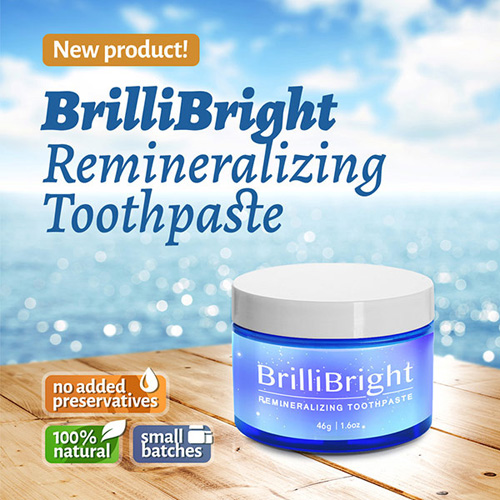
How does our new BrilliBright Remineralizing Toothpaste compare to our Bentonite Oral Balm?
We took full control of the ingredients when creating this product. This allowed us to be especially generous in adding to our formula such beneficial ingredients as tea tree oil, clove oil, and cinnamon oil.
Tea tree oil and clove oil wouldn’t taste good on their own, but they work just fine in concert with our toothpaste’s other ingredients. And they’re super-beneficial for your gums.
Higher concentration and a water-free formula have given BrilliBright a stronger taste. I like the taste—I can feel the healing effect even hours after brushing. You’ll get to love it, too. Every single ingredient in this formula—coconut oil, kaolin, calcium carbonate, and more—is well known for its beneficial effect on the gums and teeth. People who have compromised teeth or gum issues can certainly benefit.
Prefer a milder taste? Our Oral Balm may be your better option. It’s a great product and many of our clients love it—the taste, in particular. It’s where I began. However, as the years went by, I felt I needed something stronger. If you have dental issues and you need maximum effect from every brushing, try our Brillibright Remineralizing Toothpaste.
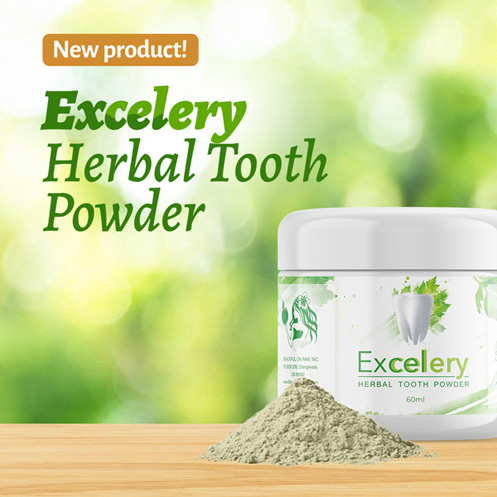
Our second new product is Excellery Herbal Tooth Powder.
We’ve been using tooth powder for a long time—since well before the advent of detergent-loaded toothpaste in 1873. It works! It cleans teeth. Freshens breath. Even whitens teeth.
But somewhere, consumerism seized us. We decided toothpaste had to come in collapsible tubes and had to be made with fluoride to be effective. As it turns out, that was not the best decision for our teeth and gums.
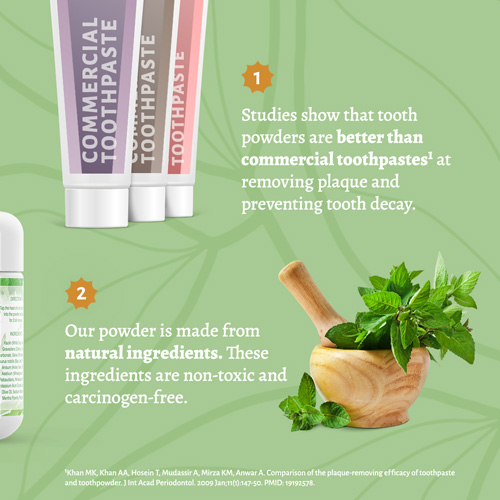
Commercial toothpaste is packed with chemicals that cause adverse effects for those sensitive to the ingredients.
Additives such as artificial sweeteners, fluoride, sodium lauryl sulfates (SLS), and abrasive microbeads are common in modern toothpastes.
SLS allows soaps to mix with water. It’s an irritant and can wreak havoc on sensitive teeth and gums!
Tooth powder presents a 100% natural alternative that produces even better results than toothpaste.
Our Excelery Tooth Powder is made from natural ingredients such as clay, celery powder, bay leaf, and wheatgrass powder—all of which are better for your overall health. These ingredients are non-toxic and carcinogen-free.
Studies show that tooth powders are also better than commercial toothpastes at removing plaque. And as a bonus, they’re also super easy to use—especially for children who are prone to swallowing those chemical-ridden commercial pastes.
